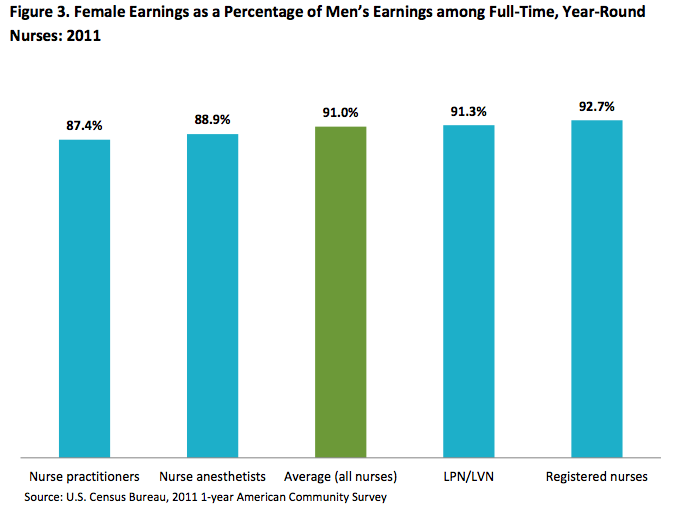Auto logout in seconds.
Continue Logout Dan Diamond, Managing Editor
Dan Diamond, Managing Editor
The gender gap in health care is well-documented. Male doctors get paid more than female doctors. Male researchers get more medical literature published than female researchers.
But looking at salary data, I learned something new on "National Equal Pay Day" this week: Even in nursing, which is dominated by women—male nurses are outnumbered almost 10:1—men make more. The average salary per year in 2011 was nearly $61,000 for a male nurse, and just $51,100 for a female nurse.
Drawing on Census data, you can see how this broke out across different levels of nursing. (Update: See comment here.)

Don't miss out on the latest Advisory Board insights
Create your free account to access 1 resource, including the latest research and webinars.
Want access without creating an account?
You have 1 free members-only resource remaining this month.
1 free members-only resources remaining
1 free members-only resources remaining
You've reached your limit of free insights
Become a member to access all of Advisory Board's resources, events, and experts
Never miss out on the latest innovative health care content tailored to you.
Benefits include:
You've reached your limit of free insights
Become a member to access all of Advisory Board's resources, events, and experts
Never miss out on the latest innovative health care content tailored to you.
Benefits include:
This content is available through your Curated Research partnership with Advisory Board. Click on ‘view this resource’ to read the full piece
Email ask@advisory.com to learn more
Click on ‘Become a Member’ to learn about the benefits of a Full-Access partnership with Advisory Board
Never miss out on the latest innovative health care content tailored to you.
Benefits Include:
This is for members only. Learn more.
Click on ‘Become a Member’ to learn about the benefits of a Full-Access partnership with Advisory Board
Never miss out on the latest innovative health care content tailored to you.
